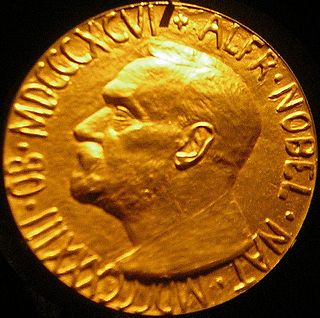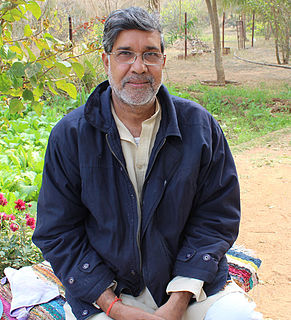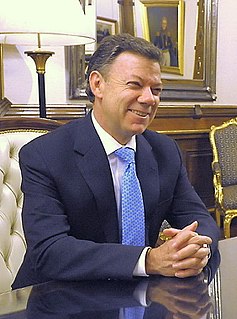This article may be in need of reorganization to comply with Wikipedia's layout guidelines .(February 2015) |
The Japanese people who conserve Article 9 are a group of people who were among the favourites to win the 2014 Nobel Peace Prize. [1] [2]
This article may be in need of reorganization to comply with Wikipedia's layout guidelines .(February 2015) |
The Japanese people who conserve Article 9 are a group of people who were among the favourites to win the 2014 Nobel Peace Prize. [1] [2]
Article 9 of the Japanese Constitution is the section of the Japanese constitution that states:
ARTICLE 9. Aspiring sincerely to an international peace based on justice and order, the Japanese people forever renounce war as a sovereign right of the nation and the threat or use of force as means of settling international disputes. To accomplish the aim of the preceding paragraph, land, sea, and air forces, as well as other war potential, will never be maintained. The right of belligerency of the state will not be recognized. [3]
Over the years, there have been different attempts to change or abolish Article 9, which was adopted in 1947. Shinzō Abe, Prime Minister of Japan since late 2012, is a supporter of making Article 9 less restrictive. In January 2013, Naomi Takasu from Zama, Kanagawa emailed the Norwegian Nobel Committee to promote Article 9 as a means to protect children. She tried to get Article 9 itself nominated for the Nobel Peace Prize, but since she didn't have the time to organise protests, she campaigned from home, by email. Joined by other people from Zama and from Sagamihara, she formed the "Organizing Committee for the Nobel Peace Prize for Article 9 of the Constitution.", which by August 2013 had gathered 24,000 signatures to support the nomination. [4]
After receiving the petition, the Committee replied that the Prize can only be awarded to people or organizations, disqualifying the Article 9 nomination. Takasu then changed the nomination to be about the Japanese people who want to keep Article 9. [4] Since not everyone can make nominations for the Prize, she couldn't officially nominate the group herself. A number of Japanese professors with the right qualifications supported her cause and submitted the revised nomination. [5]
The group has continued to grow in Japan and receive support from all over the world. By June 2014, about 80,000 people had signed the petition. [5] Notable members include Yōichi Komori, professor at the University of Tokyo and leader of the group Kyujo no Kai ("Association of Article 9"). Political reactions to the group and the chances of a Nobel Prize for it have been mixed. [4]
In the days running up to the announcement of the 2014 Nobel Peace Prize, there was widespread speculation that the so-called "Japanese people who conserve Article 9" group were favourites to win the prize. In the end, the winners were Kailash Satyarthi from India and Malala Yousafzai from Pakistan.
The speculation about their chances was fueled when Kristian Berg Harpviken, director of the Peace Research Institute Oslo, who each year announces his shortlist of favourites for the prize, named the group as his top for 2014 in his revised list, posted 3 October 2014. [6]

The Nobel Prize is five separate prizes that, according to Alfred Nobel's will of 1895, are awarded to "those who, during the preceding year, have conferred the greatest benefit to humankind."

The Nobel Prize in Physics is a yearly award given by the Royal Swedish Academy of Sciences for those who have made the most outstanding contributions for mankind in the field of physics. It is one of the five Nobel Prizes established by the will of Alfred Nobel in 1895 and awarded since 1901; the others being the Nobel Prize in Chemistry, Nobel Prize in Literature, Nobel Peace Prize, and Nobel Prize in Physiology or Medicine. Physics is traditionally the first award presented in the Nobel Prize ceremony.

Christian Tybring-Gjedde is a Norwegian politician who represents the Progress Party. He has been a member of the Norwegian parliament since 2005, and was the leader of the Progress Party's Oslo chapter from 2010 to 2014.

The Nobel Prize in Literature is a Swedish literature prize that is awarded annually, since 1901, to an author from any country who has, in the words of the will of Swedish industrialist Alfred Nobel, "in the field of literature, produced the most outstanding work in an idealistic direction". Though individual works are sometimes cited as being particularly noteworthy, the award is based on an author's body of work as a whole. The Swedish Academy decides who, if anyone, will receive the prize. The academy announces the name of the laureate in early October. It is one of the five Nobel Prizes established by the will of Alfred Nobel in 1895. Literature is traditionally the final award presented at the Nobel Prize ceremony. On some occasions the award has been postponed to the following year, most recently in 2018.

The 2009 Nobel Peace Prize was awarded to United States President Barack Obama for his "extraordinary efforts to strengthen international diplomacy and cooperation between peoples". The Norwegian Nobel Committee announced the award on October 9, 2009, citing Obama's promotion of nuclear nonproliferation and a "new climate" in international relations fostered by Obama, especially in reaching out to the Muslim world.

Kristian Berg Harpviken is a Norwegian sociologist and researcher, and since 2009 director of the Peace Research Institute Oslo (PRIO). Harpviken is foremost known for his competence on Afghanistan, where he has travelled extensively and conducted multiple field works since he first engaged with the country in 1989.

The Nobel Prize in Chemistry is awarded annually by the Royal Swedish Academy of Sciences to scientists in the various fields of chemistry. It is one of the five Nobel Prizes established by the will of Alfred Nobel in 1895, awarded for outstanding contributions in chemistry, physics, literature, peace, and physiology or medicine. This award is administered by the Nobel Foundation, and awarded by the Royal Swedish Academy of Sciences on proposal of the Nobel Committee for Chemistry which consists of five members elected by the Academy. The award is presented in Stockholm at an annual ceremony on 10 December, the anniversary of Nobel's death.

The Nobel Peace Prize is one of the five Nobel Prizes established by the will of Swedish industrialist, inventor, and armaments manufacturer Alfred Nobel, along with the prizes in Chemistry, Physics, Physiology or Medicine, and Literature. Since March 1901, it has been awarded annually to those who have "done the most or the best work for fraternity between nations, for the abolition or reduction of standing armies and for the holding and promotion of peace congresses".
The 2010 Nobel Peace Prize was awarded to imprisoned Chinese human rights activist Liu Xiaobo "for his long and non-violent struggle for fundamental human rights in China". The laureate, once an eminent scholar, was reportedly little-known inside the People's Republic of China (PRC) at the time of the award due to official censorship; he partook in the Tiananmen Square protests of 1989 and was a co-author of the Charter 08 manifesto, for which he was sentenced to 11 years in prison on 25 December 2009. Liu, who was backed by former Czech president Václav Havel and anti-apartheid activist and cleric Desmond Tutu, also a Nobel Peace Prize winner, received the award among a record field of more than 200 nominees.

Shahrbanou Tadjbakhsh is an Iranian-American researcher, university lecturer, and United Nations consultant in peacebuilding, conflict resolution, counter-terrorism, and radicalization, best known for her work in "Human Security" and for contributions in the republics of Central Asia and Afghanistan, as cited by the New York Times and other publications as well as hundreds of scholarly publications. Currently, she is a lecturer at Sciences Po, researcher, and consultant to the United Nations.

Igor Viktorovich Kochetkov is a Russian gay rights activist who heads the Russian LGBT Network.

The 2014 Nobel Peace Prize was shared, in two equal parts, between Kailash Satyarthi and Malala Yousafzai "for their struggle against the suppression of children and young people and for the right of all children to education". Satyarthi is from India, the seventh person from his country to win a Nobel Prize and the second to win the Peace Prize after Mother Teresa, while Yousafzai is a Muslim from Pakistan, the second Nobel Prize winner from her country after Abdus Salam, the forty-seventh woman to win the Nobel Prize, and at the age of 17 years, the youngest winner of a Nobel Prize in any field.
The Nobel Peace Prize for Article 9 of the Japanese Constitution (憲法9条にノーベル平和賞を) is a social movement whose aim is to push for the Nobel Peace Prize to be awarded to the citizens of Japan for maintaining the country's post-war Constitution, especially Article 9.

The 2015 Nobel Peace Prize was awarded to the Tunisian National Dialogue Quartet for "its decisive contribution to the building of a pluralistic democracy in Tunisia in the wake of the Jasmine Revolution of 2011".

The 2016 Nobel Peace Prize was awarded to the President of Colombia Juan Manuel Santos "for his resolute efforts to bring the country’s more than 50-year-long civil war to an end, a war that has cost the lives of at least 220,000 Colombians and displaced close to six million people." The conflict is the longest running war, and last remaining guerrilla struggle, in the Americas. The Nobel Peace Prize is awarded annually to those who have "done the most or the best work for fraternity between nations, for the abolition or reduction of standing armies and for the holding and promotion of peace congresses". The announcement was made on 7 October at a press conference at the Nobel Peace Center, and the formal award ceremony took place on 10 December at the Oslo City Hall.

The 2017 Nobel Peace Prize was awarded to the International Campaign to Abolish Nuclear Weapons (ICAN) "for its work to draw attention to the catastrophic humanitarian consequences of any use of nuclear weapons and for its ground-breaking efforts to achieve a treaty-based prohibition on such weapons," according to the Norwegian Nobel Committee announcement on October 6, 2017. The award announcement acknowledged the fact that "the world's nine nuclear-armed powers and their allies" neither signed nor supported the treaty-based prohibition known as the Treaty on the Prohibition of Nuclear Weapons or nuclear ban treaty, yet in an interview Committee Chair Berit Reiss-Andersen told reporters that the award was intended to give "encouragement to all players in the field" to disarm. The award was hailed by civil society as well as governmental and intergovernmental representatives who support the nuclear ban treaty, but drew criticism from those opposed. At the Nobel Peace Prize award ceremony held in Oslo City Hall on December 10, 2017, Setsuko Thurlow, an 85-year-old woman Who survived the 1945 atomic bombing of Hiroshima, and ICAN Executive Director Beatrice Fihn jointly received a medal and diploma of the award on behalf of ICAN and delivered the Nobel lecture.

The 2018 Nobel Peace Prize was awarded to Denis Mukwege and Nadia Murad "for their efforts to end the use of sexual violence as a weapon of war and armed conflict," according to the Norwegian Nobel Committee announcement on 5 October 2018 in Oslo, Norway. "Both laureates have made a crucial contribution to focusing attention on, and combating, such war crimes," according to the award citation. After reading the citation, Committee Chair Berit Reiss-Andersen told reporters that the impact of this year's award is to highlight sexual abuse with the goal that every level of governance take responsibility to end such crimes and impunities.

The 2020 Nobel Peace Prize was awarded to the World Food Programme by the Norwegian Nobel Committee. The announcement was made on Friday 9 October at 11:00 CEST.
The 2021 Nobel Peace Prize was announced by the Norwegian Nobel Committee in Oslo on 8 October 2021. Maria Ressa and Dmitry Muratov received the prize "for their efforts to safeguard freedom of expression, which is a precondition for democracy and lasting peace."